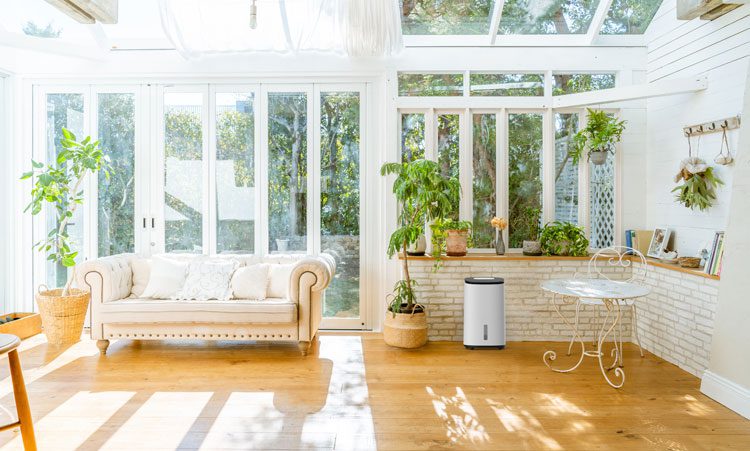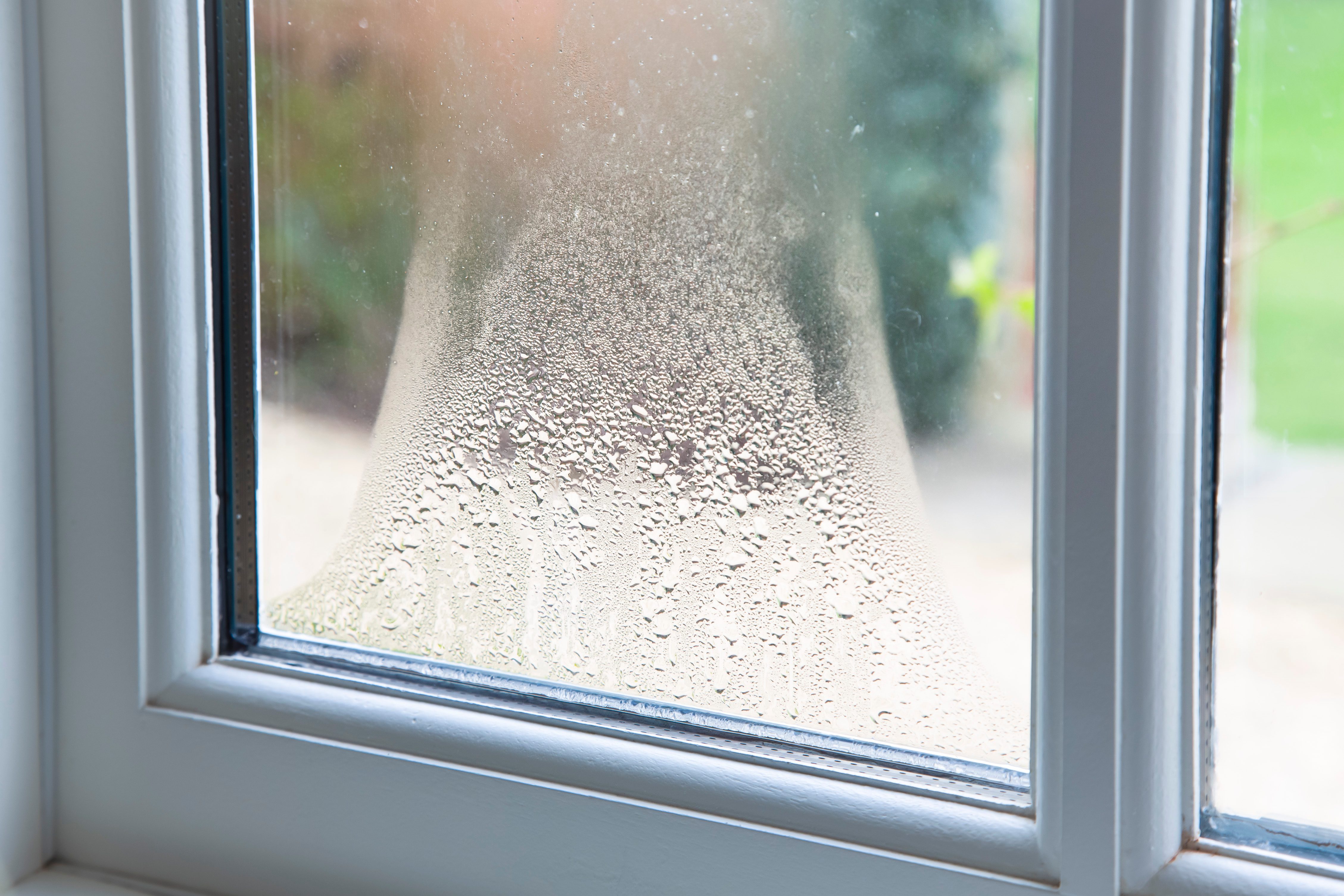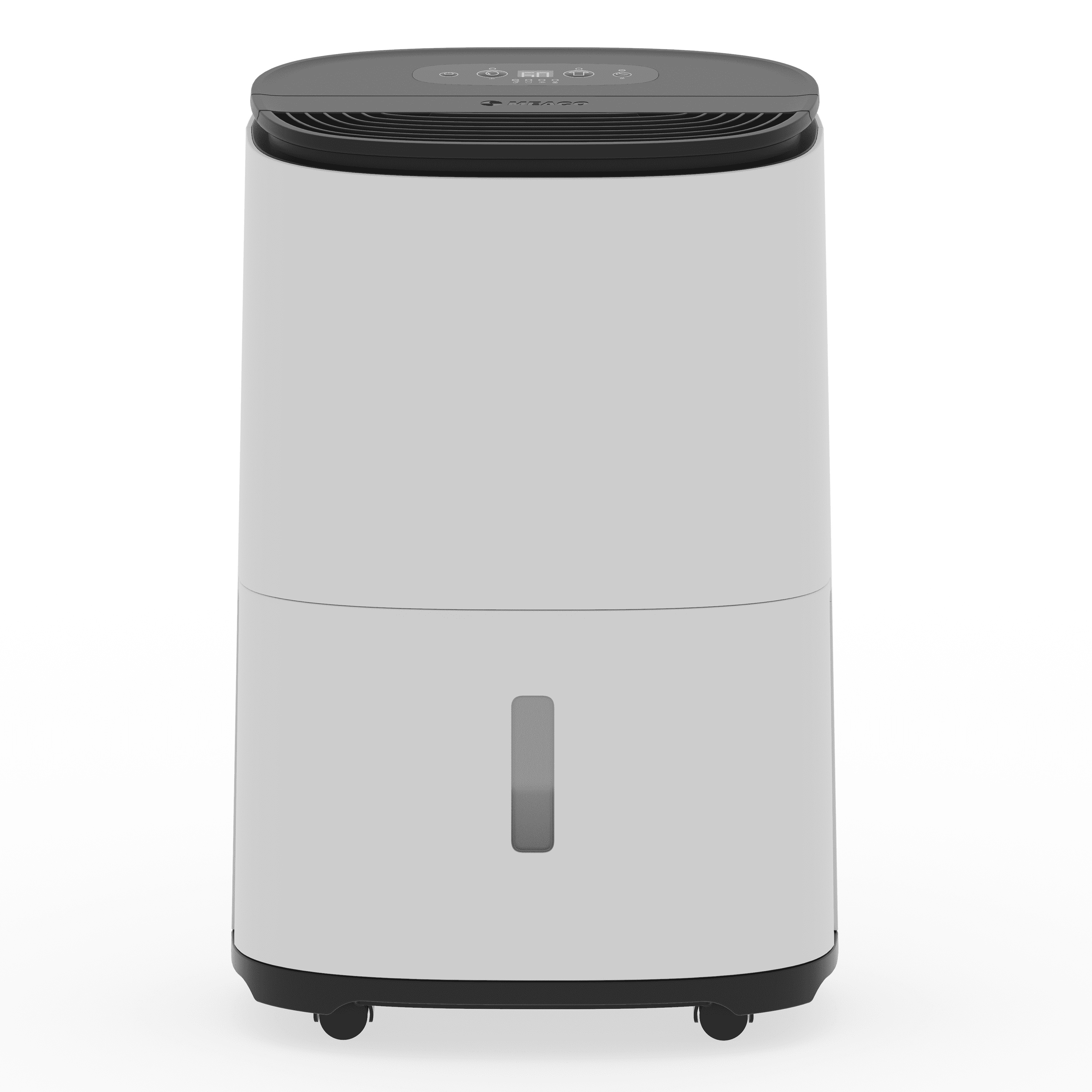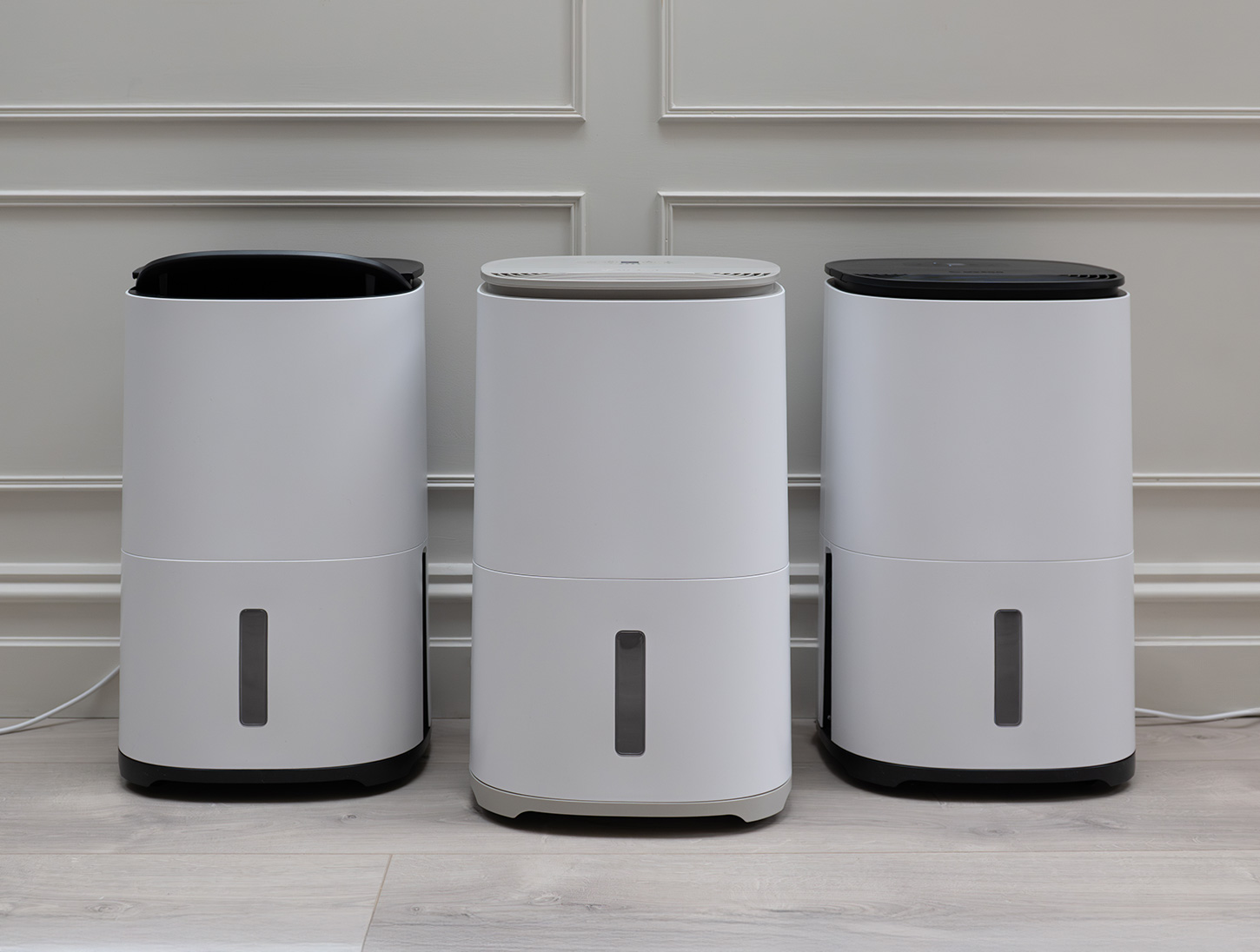
If you have a conservatory in your home, you may have noticed problems with moisture. Perhaps you have condensation on your windows, especially in the colder months.
We often get questions about conservatory condensation on windows, doors, blinds and even soft furnishings. Without treatment, this condensation can quickly turn into mould which can be damaging to your health and to the building.
Why am I getting condensation on my conservatory windows?
Getting condensation on the windows of your conversatory will depend on the type of conservatory you have, as well as how it is heated and ventilated.

Condensation occurs when warmer air comes into contact with a cold surface, like glass. Hence why condensation is particularly common with conservatories. Think of the process in the same way as an ice cold drink on a hot summer day. When the warm air comes into contact with the cold glass surface, the water molecules in the air become liquid and rest on the glass. The same is true when warm air within the home touches the cold surface of the window. When the excess moisture within the room touches the cold windows, the molecules are cooled, and then transformed into liquid.
Today’s conservatories come in all shapes and sizes – with a range of windows, blinds, doors and glazing. So it’s worth understanding how your conservatory relates to the rest of your home and what you can do to keep it in good order. Below we share an example of a question we received from a customer regarding their conservatory:
“I live in a 3 bedroom house with a conservatory. The conservatory has no heating in and is separated from the house with sliding patio style doors. In winter it gets freezing in the conservatory and we get bad condensation on the windows and roof which can then sometimes drip. The conservatory doesn’t appear to be well ventilated so I am going to fit trickle vents to give airflow but wondered if your product would aid in reducing the condensation further and possibly heat the room to an extent? Can you advise?”
Can you use a dehumidifier to manage damp and mould in a cold conservatory?
If your conservatory is unheated, it will be very cold during the winter months. And if it’s an old building or poorly ventilated then adding vents and airflow is a great idea. There will be condensation and the easiest way to manage this is to use a dehumidifier. This will help to reduce the excess moisture in the air which will, in turn, manage your condensation problem.
A dehumidifier is cheap to run and will make a huge difference to this particular moisture problem. Whether your conservatory has UPVC, casement, composite or aluminium windows and doors, condensation will be reduced and your building will be less damp and healthier for you to use.
Should I get a desiccant or compressor dehumidifier for my conservatory?

Since conservatories are often colder spaces, we recommend a desiccant dehumidifier. This is because they work better than compressor dehumidifiers at temperatures under 10 degrees – which is what your conservatory will be during the winter. The Meaco DD8L dehumidifier is a great option for smaller conservatories.
MeacoDry Arete® One is the exception to the rule. Though this is a compressor dehumidifier, it has been engineered to perform just as well as a desiccant in lower temperatures, like conservatories in winter.
Products featured:







8 responses
What’s the best target humidity for my conservatory in winter months?
I leave it running 24/7 on Smart Humidity setting.
Excellent product.
Thanks
Tim,
Thank you for your message and feedback. For a conservatory, the ideal target humidity is usually around 50–55%. The level of any dampness or condensation will depend on the type of conservatory you have, its age, and how it is heated and ventilated. Running your unit 24/7 is fine, set your target and let it work and it will adjust automatically to maintain a comfortable level.
We’re glad to hear you’re enjoying your dehumidifier!
Omar@Meaco
Thank you for this article. Having read your article I am pleased that the outside door has a draught! The door into the house has a 2″ gap at the bottom. I have electric roof blinds in my small conservatory. They are open during the day to let the sunlight in, and I close them in the evening to retain the warmth. I have a Meaco Zambesi DD8L set to 40% rh that I run overnight. Before it came there was lots of mould but none since. (You should include an advert with conservatory brochures. We were never told to get a dehumidifier.) I re-open the roof blinds from 1930 to 2030 to prevent moist air getting trapped behind them. Then I close them until the morning. In the morning roof windows are all dry apart from some condensation at the bottom and especially the inside corners. Side windows (with blinds closed) have no condensation. I set the under-floor heating to about 12-15 C and Zambesi gives out heat also.
My question: If I left the roof blinds open all night would the windows stay drier? I don’t want the wires to the blinds motors to get wet. But I would lose more heat.
Matthew,
Thank you for your question. Leaving the roof blinds open all night could help with ventilation and reduce moisture build-up on the windows, as it allows air to circulate more freely. However, as you mentioned, this might result in heat loss, which could make your space colder.
I hope that helps,
Omar@Meaco.
Would the Meaco Low Energy 20 Litre Dehumidifier be any good in a large conservatory?
Yes, it would be good in a conservatory.
Following on from the above question about a freezing conservatory, I have just bought a Meacon 12L . Would this be OK to run in the conservatory conditions mentioned above? I think it is a condensor unit.
It will be fine but if you can keep the temperature above 10°C then it will be even better.